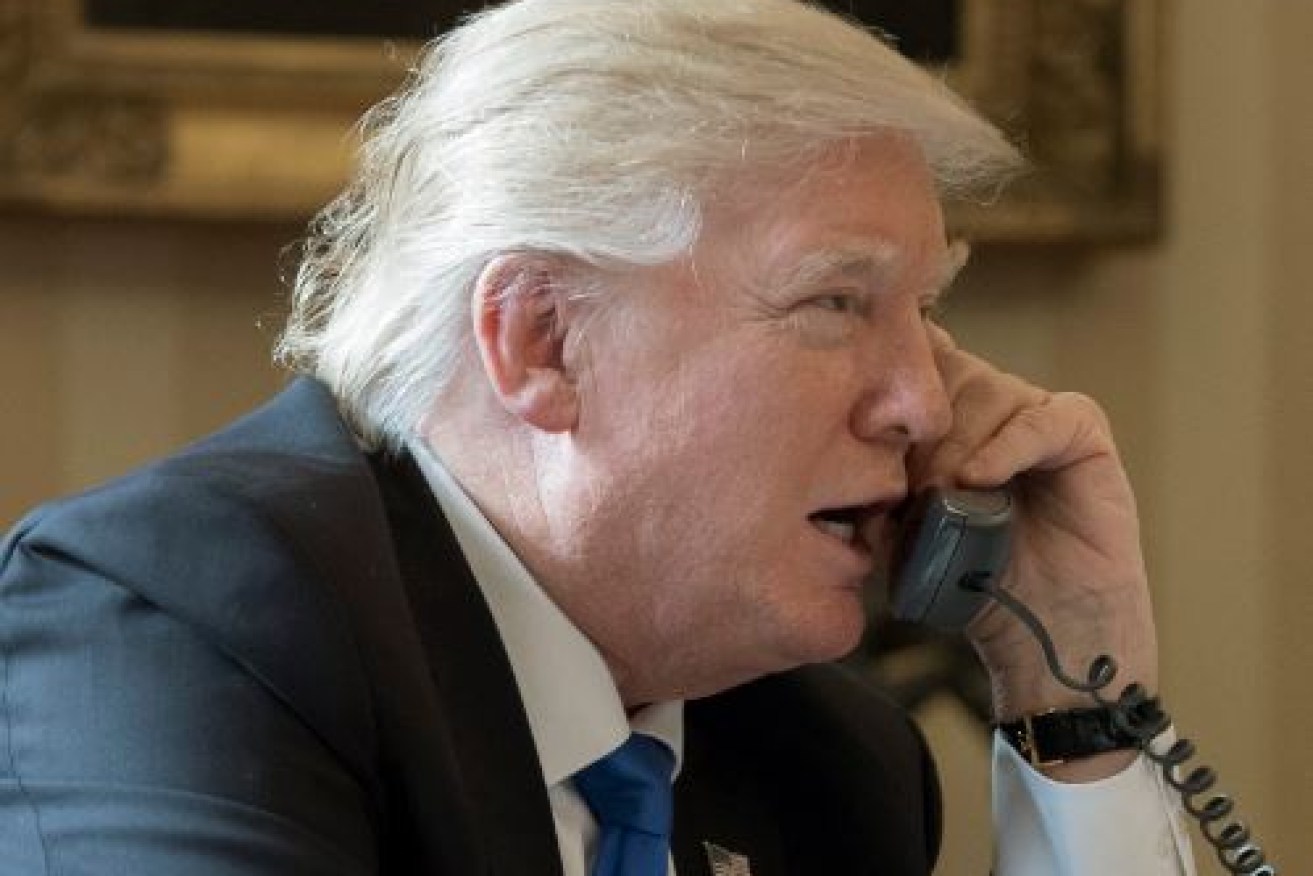US said to be honouring asylum seeker pact

US President Donald Trump has wrapped up a day of calls to world leaders with a chat to Australian Prime Minister Malcolm Turnbull — a conversation that came as a US federal court judge delivered a blow to the White House by freeing two Iraqi men who had been detained by immigration officials after arriving in New York.
Judge Ann Donnelly ruled that the travellers held valid visas and could not be denied entry. Iraq is one of seven predominately Muslim countries whose citizens were subjected to an executive order denying them entry.
The case, brought on behalf of the duo by the American Civil Liberties Union, marks the first successful legal challenge to the new president and his administration.
The phone call with Mr Turnbull came just a day after Mr Trump signed the executive order, which also suspended his country’s refugee program and cast doubt on Australia’s refugee resettlement deal with the US.
That deal is still likely to go head, the ABC reports, saying that it “understands” the Trump administration will stand by the pact authorised by Barack Obama. As yet there has been no official statement or independent confirmation of the ABC report.
Prime Minister Malcolm Turnbull and US President Donald Trump emphasised the “enduring strength and closeness” of the US-Australia relationship in a 25-minute conversation, the White House has said.
“Both leaders emphasised the enduring strength and closeness of the US-Australia relationship that is critical for peace, stability and prosperity in the Asia-Pacific region and globally,” the White House said in a statement.
The leaders had been expected to discuss the refugee resettlement deal, in which some refugees on Manus Island or Nauru would be resettled in the US instead of Australia.
The White House statement made no mention of the issue.
Mr Turnbull’s office has released no further details about the phone call.
Before the call, Mr Turnbull said there is a section in Mr Trump’s executive order which states officials can still admit refugees under pre-existing international agreements.
The ABC understands that section was included in the final version of the executive order after the Prime Minister’s office intervened.
“We are very confident and satisfied that existing arrangements will continue,” Mr Turnbull said before the call.
“It’s quite clear that the administration has set out in the order the ability to deal with existing arrangements.”
Earlier this week senior government sources said they were confident the orders will not impact the deal to resettle refugees currently on Manus Island and Nauru, entered into late last year with former president Barack Obama.
Dreams of better life crushed
Syrian refugee Ammar Sawan describes Donald Trump’s entry ban as a bolt of lightning in which his “hopes and dreams vanished”.
Authorities had hoped to begin moving people to the US at the start of this year.
Deputy Prime Minister Barnaby Joyce said it would not be the end of the world if the deal did not go ahead.
When asked by Sydney radio station 2GB if the deal would proceed, Mr Joyce responded: “Let’s see.”
“I hope that this, which has been well planned and well thought out, goes forward,” he said.
The US President has also spoken with Russian President Vladimir Putin and German Chancellor Angela Merkel.
The president lived up to many of his controversial election campaign promises including scrapping the Trans-Pacific Partnership between the US, Australia and 10 other Pacific nations, ordering the construction of a border wall with Mexico and introducing tough new rules blocking refugees and travel to the US from seven mostly Muslim nations including Syria, Iraq and Iran.
The tough stance on refugees raises speculation Mr Trump will scrap the US-Australia asylum seeker deal involving refugees held on Nauru and Manus Island. Mr Turnbull struck the deal last year with then US President Barack Obama.
Mr Turnbull was looking forward to the conversation on Saturday.
“We have a great deal to discuss,” he said. “We are very, very close friends and very strong and trusted allies.”
Meanwhile, discord among US allies is mounting after Trump’s first week in the Oval Office saw him implement promises made on the campaign trail. Prominent amongst his critics was French President Francois Hollande.
“What we are hearing from the U.S. encourages populism and even extremism,” said Hollande. “They are saying that Europe should not take immigrants, shouldn’t stay together, not believe in climate change.”
Hollande’s comments amount to a rallying cry to fellow European leaders who he urged to take a firm line with Trump and resist US initiatives running counter to policies and agendas endorsed by the Obama administration.
“We should engage in discussions (with the U.S.) that sometimes should be very firm,” Hollande said.
“When he speaks about … Brexit for other countries, when the U.S. president talks about climate change, saying he’s not convinced of it, we should respond to him.
“When he takes protectionist measures, we should respond to him.
“When he destabilizes the economies of other countries, not only European ones, we should respond to him.
“When he rejects the arrival of refugees, while Europe has done its duty, we should respond to him.”








